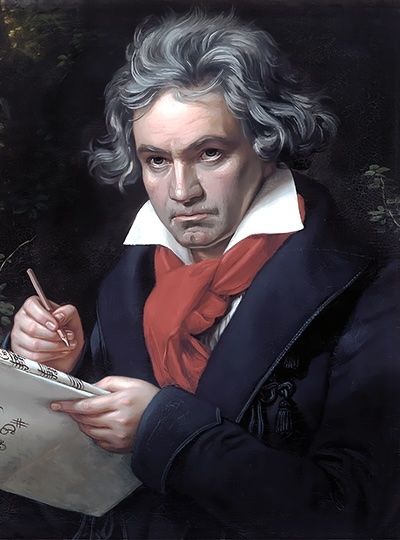Introduction to Classical Music
Contact
Otterweg 27
5741BC Beek en Donk Plan your route to Introduction to Classical Music
Violinist Boudewijn Hopman will take you into the world of Ludwig van Beethoven during a lecture, supported by various musical interludes. This lecture has been organised by Seniors' Association Beek and Donk. Famous works will then be discussed and listened to in detail. Attention this afternoon to: Bagatelle Für Elise, Piano Sonata Op.2 No.1, Concert - Overture Coriolan, the Ninth Symphony Syndrome, Symphony No.5 and the Violin Concerto, Part 3, Rondo.
German composer Ludwig van Beethoven left his hometown of Bonn and sett…
Violinist Boudewijn Hopman will take you into the world of Ludwig van Beethoven during a lecture, supported by various musical interludes. This lecture has been organised by Seniors' Association Beek and Donk. Famous works will then be discussed and listened to in detail. Attention this afternoon to: Bagatelle Für Elise, Piano Sonata Op.2 No.1, Concert - Overture Coriolan, the Ninth Symphony Syndrome, Symphony No.5 and the Violin Concerto, Part 3, Rondo.
German composer Ludwig van Beethoven left his hometown of Bonn and settled in Vienna. His compositions had a great influence on the development of nineteenth-century music. He is still regarded by many as the most important composer ever. At the age of 12, he was allowed to fill in for Neefe as organist and theatre chapel master. Maximilian Francis of Austria, also Archbishop and Elector in Cologne, became the young Ludwig's patron and funded, among other things, his first trip to Vienna. In 1787, Beethoven (aged 17) arrived there to study with Mozart, but this stay was short-lived. It is not even known whether the two met to prevent the publication of his first piano trios.
discussed and listened to in detail. Attention this afternoon to:
Meanwhile, Beethoven's reputation as an improviser began to grow and his first compositions were published in 1795. Apart from a few concert tours, Beethoven would not leave Vienna again. In 1798, Beethoven (aged 28) discovered that his hearing was deteriorating. He would spend the rest of his life fighting a constant battle against this handicap. As a result, his compositions developed with difficulty. By 1819, Beethoven was completely deaf.
Beethoven composed his Symphony No 3 (Eroica) in 1804, a symphony on a scale hitherto unheard of. This symphony was longer and more emotionally expressive, than all its predecessors. Beethoven dedicated the piece of music to Napoleon Bonaparte, but deleted Napoleon's name from the score when he learned that his French hero was crowning himself Emperor. Most of Beethoven's music was groundbreaking, but perhaps none more accepted, than the ‘Ninth Symphony’ with its vocal solos and choral finale. In this Symphony, one knows the melody of the European Hymn. The text ‘Ode an die Freude’ was written by Friedrich von Schiller in 1785.
Beethoven died on 26 March 1827, aged 57, in Vienna. The composer's death prompted national mourning. One of the torchbearers at his funeral was Franz Schubert.
Prices
- Members €5.00
- Non-members €6.50

